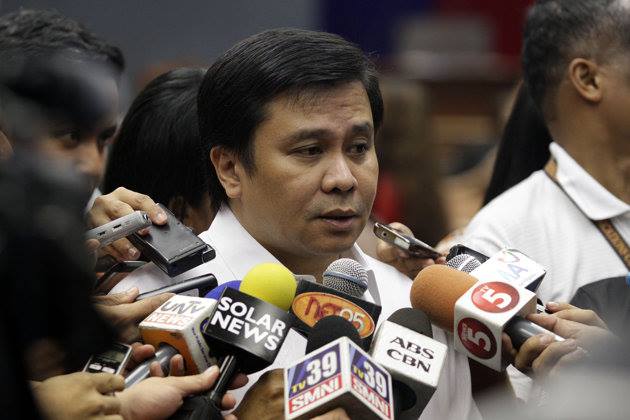Headline
SC issues no TRO vs. Ombudsman on Jinggoy’s graft, plunder raps
MANILA — The Supreme Court (SC) on Wednesday did not issue a temporary restraining order (TRO) that would stop the Office of the Ombudsman (Ombudsman) from proceeding with the graft and plunder cases against Senator Jose “Jinggoy” Estrada in connection with the alleged misuse of his Priority Development Assistance Fund (PDAF).
Instead, the SC ordered the Ombudsman, the National Bureau of Investigation (NBI) and Atty. Levito Baligod, who acted as complainant, to answer Estrada’s petition and his plea for a TRO within a non-extendible period of 10 days from receipt of the order.
The SC is on its decision-writing month this May and its division and full court sessions will resume in June.
It earlier declared PDAF unconstitutional.
Aside from stopping the criminal proceedings against him, Estrada also asked the SC to compel the Ombudsman to furnish him copies of several documents in connection with the complaints.
Requested by Estrada were copies of the affidavits filed by Ruby Tuason and on-leave Technology Resource Center (TRC) director general Dennis Cunanan, the counter-affidavits of National Livelihood Development Corporation president Gondelina Amata and Department of Budget and Management (DBM) Undersecretary for Operations Mario Relampagos, the consolidated reply of the NBI, as well as the documents submitted by the other respondents in the pork barrel scam case and or additional witnesses for the government.
Estrada argued that he needed these affidavits and counter-affidavits so that he can be apprised of the allegations made against him.
He said that the Ombudsman denied his request in a resolution dated March 27, 2014.
It was not known immediately whether the Ombudsman reconsidered its resolution.
But on March 28, 2014, Estrada said that the Ombudsman issued a resolution that would charge him before the Sandiganbayan with one count of plunder and 11 counts of violations of the Anti-Graft and Corrupt Practices Act.
According to Estrada, the criminal complaints filed against him “are nothing more than a high-level political ploy to undermine the opposition of which he is a member.”
Estrada said that Ombudsman Conchita Carpio Morales violated the Ombudsman’s own Rules of Procedure, Rule 112 of the Rules of Court, Article III of the Constitution and various SC decisions when the March 27, 2014 resolution was issued.
He stressed that the Ombudsman’s resolution “grievously ignored, trampled upon and violated “his Constitutional rights to due process when it first denied his request and then later on filed charges against him using those affidavits”, which he added, were “not disclosed to him.”
“The Office of the Ombudsman is patently wrong in insisting that simply because a preliminary investigation is a mere statutory right, the constitutional guarantee of due process of law is not applicable to such proceedings,” he said.
Estrada further argued that the Rules of Procedure of the Office of the Ombudsman “expressly and unequivocally” grant any person charged before it the right to access to the records of the preliminary investigation.
Likewise, he said that Section 3, Rule 11 of the Rules of Court provide further support to his right to access to the evidence adduced during a preliminary investigation.
“Clearly, contrary to the position taken by the Office of the Ombudsman…
a person undergoing a preliminary investigation musty be apprised of all the acts upon which and any criminal charges is to be based,” Estrada added.






















